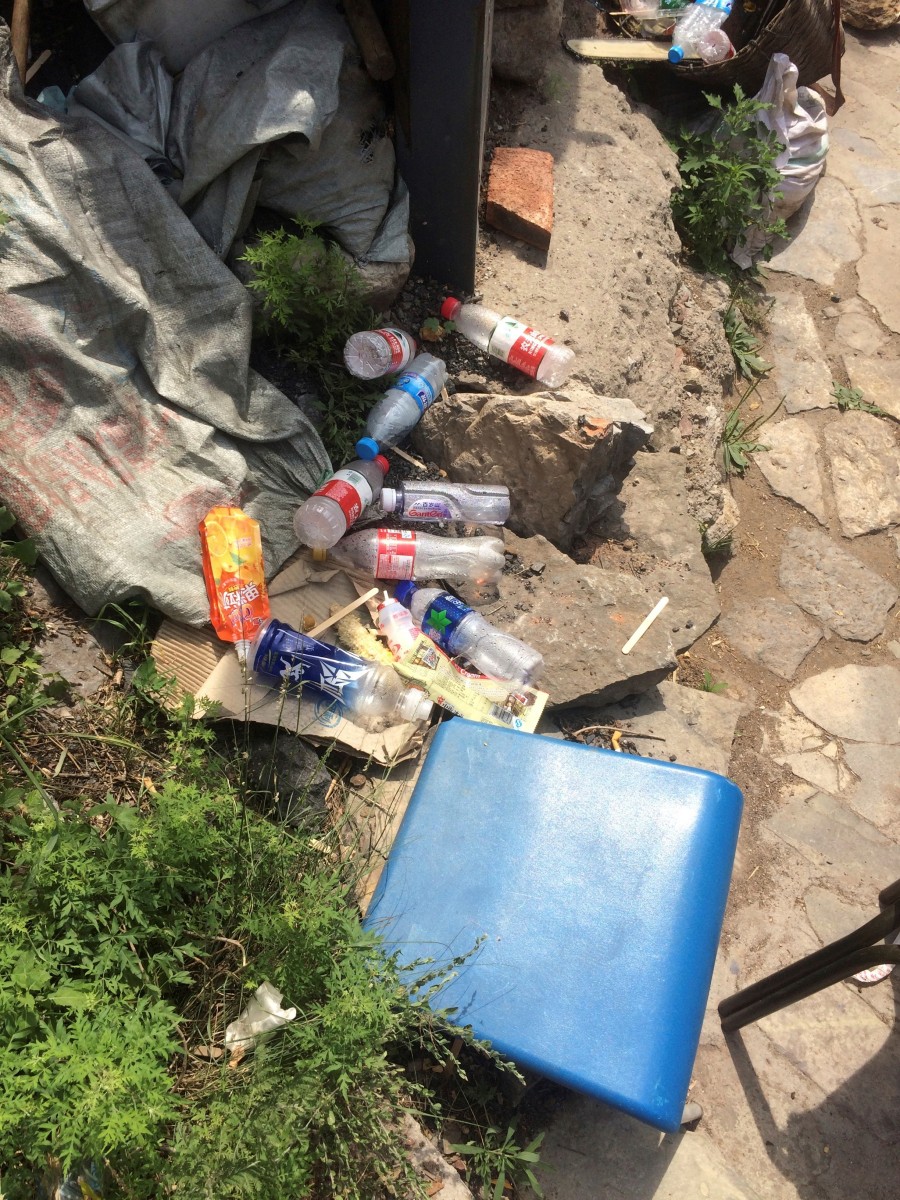by Molly Vincent, Guest Student Blogger
China is the world’s leading contributor of trash in the ocean, adding nearly three billion tons more than Indonesia, the next biggest offender. The over-packed country hosts over one billion people in the planet’s ever-growing population. For five weeks in June and July, I was lucky enough to study abroad in Beijing, one of the most populated cities in the world at over twenty million residents. When I first arrived, I was overwhelmed with culture shock. I was in a large, unfamiliar city with people talking to one another in a language I did not speak. After getting adjusted to my new room at Beijing Foreign Studies University, I started exploring the areas and backstreets around me. The first thing I noticed in Beijing is that it is not a very clean place. I could smell the stench of waste as I walked down trash-lined streets.
During my first weekend in Beijing, ten other University of Portland students and myself visited Cuan Dixia, an old Ming Dynasty village that had been left standing for hundreds of years. The village is filled with various huts, homes, and inns. While climbing a mountain in the village, I kept running across piles of trash: empty snack bags, plastic water bottles, and paper. While litter isn’t necessarily uncommon, it seemed to be everywhere in Cuan Dixia.
One of my favorite things to do was to eat good, authentic food. Many street vendors simply put unprotected food in grocery bags for their customers to take on the go. More upscale restaurants wrap dishes in plastic before patrons use them. I would have to unwrap my dishes out of their plastic binding before eating. That is because a lot of restaurants send their dishes to be cleaned instead of cleaning them at the restaurant. The dishes then come back in plastic wrapping.
Much of the plastic waste comes from water bottles. Plastic bottles are ubiquitous in China. Not once did I see a person with a reusable water bottle (with the exception of people in my study abroad group). The reason why is because China does not have drinkable tap water. I knew that, but I thought locals would drink water because they’d built up an immunity that I didn’t have. However, virtually no one drinks it. I bought large plastic containers of water that would last me a few days. I poured the water into my reusable bottle and carried it throughout the day. I figured buying water in bulk would reduce plastic waste from getting smaller individual bottles. Avoiding plastic is impossible in China.
Just like the States, China does have trash bins and recycling bins, but the recycling bins are far less common and not as easy to find. More upscale establishments have them (hotels, train stations, some restaurants, airports), but they aren’t as readily available as they are here.
By the end of my trip, I came to a conclusion about what I learned during my time abroad: plastic waste isn’t really an issue on anyone’s radar. If it was, people would be more conscious of how much plastic they use. A lot of trash ends up in the streets and washes away during rainstorms. The problem China faces with plastic waste is they have such a large population. Approximately one-sixth of the world’s population resides in China, and Beijing is the home to millions of those people. Humans produce waste.
One way to reduce plastic waste is through finding alternatives. If water was filtered and safer to drink, plastic bottle production and waste would be greatly reduced. Until China learns to change its habits, ocean plastic will remain an issue. But with increasing modernization, there is hope yet.









Leave a Reply
Your email is safe with me.